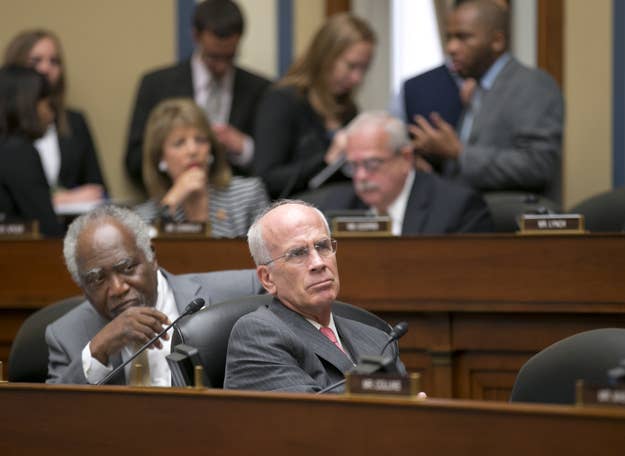
WASHINGTON — Congressman Peter Welch, outraged by the news that JPMorgan may count some of it's reported $13 billion settlement with the Department of Justice as a tax write-off, is introducing legislation that would make it illegal for the bank to do so.
Welch, a liberal from Vermont, is also circulating a letter he plans on sending to JPMorgan CEO Jamie Dimon to "accept full responsibility for the full payment of any fine related to its conduct in this matter."
The tax-deductibility of settlements has raised the ire of Congress before, but has never lead to action. Although JPMorgan hasn't yet settled with the Justice Department, the reported $13 billion figure could be dramatically cut down if JPMorgan is able to deduct much of it from its corporate tax bill. Penalties paid to the government, expected to be $2 billion, are not tax deductible, but money that goes to homeowners and investors could be deducted from JPMorgan's taxes. If the remaining $11 billion not classified as a penalty goes to compensate Fannie Mae, Freddie Mac, private investors, and homeowners, JPMorgan could end up saving just over $4 billion on taxes, putting the total cost of a $13 billion settlement at $9 billion.
"Should a wrongdoer whose conduct caused harm to the taxpayer ask the taxpayer to help pay the fine for the wrong done?" Welch wrote. "We think not. Yet news reports indicate that J.P. Morgan, in its negotiations with the Justice Department over a $13 billion fine related to its mortgage activities, is seeking to do just that – shift a significant portion of its penalty to the American taxpayer."
"The taxpayer should not, therefore, be required to contribute a nickel towards the fines imposed for conduct that got America into this mess in the first place," he added.
The legislation Welch is introducing would also apply to any future settlements the DOJ negotiates with big banks over their behavior in the run-up to the 2008 financial crisis.
Some settlements are written specifically to avoid any tax write-offs. When the Justice Department settled a criminal case with BP over the gulf oil spill, it specifically forbade the oil company from deducting any of it in taxes. The upcoming JPMorgan settlement, however, is civil and not criminal and any portion of it that compensates investors or homeowners could likely be deducted as a business expense.
In 2003, Iowa Republican Chuck Grassley introduced legislation that would prohibit companies from deducting government settlements as business expenses if they were "in relation to the violation of any law or the investigation or inquiry into the potential violation of any law." The bill, however, never passed.

